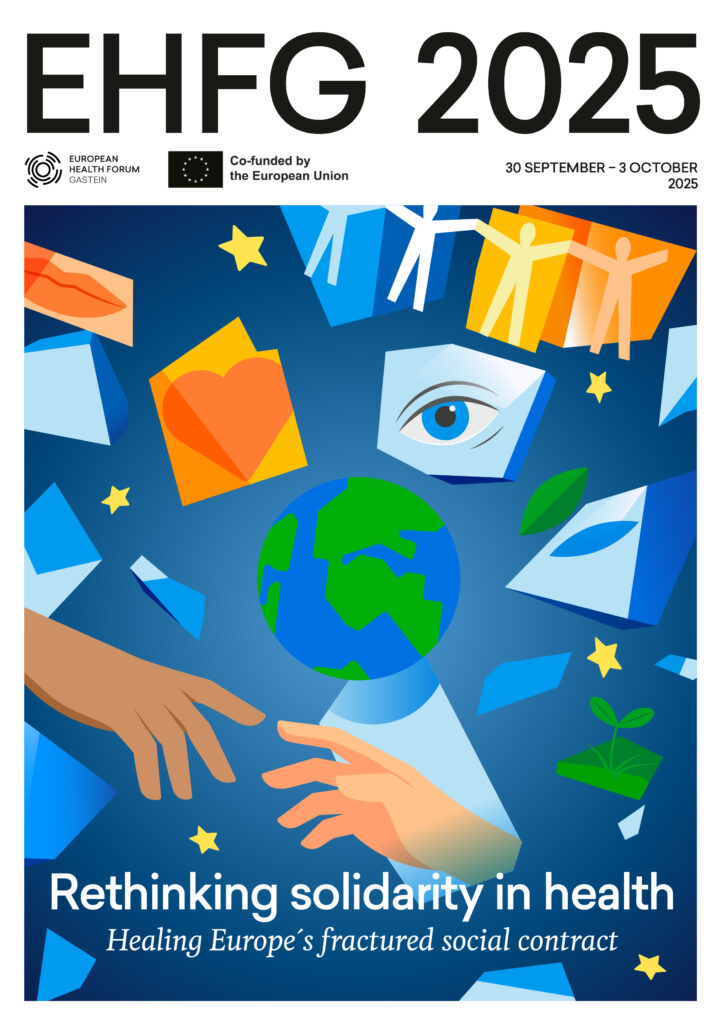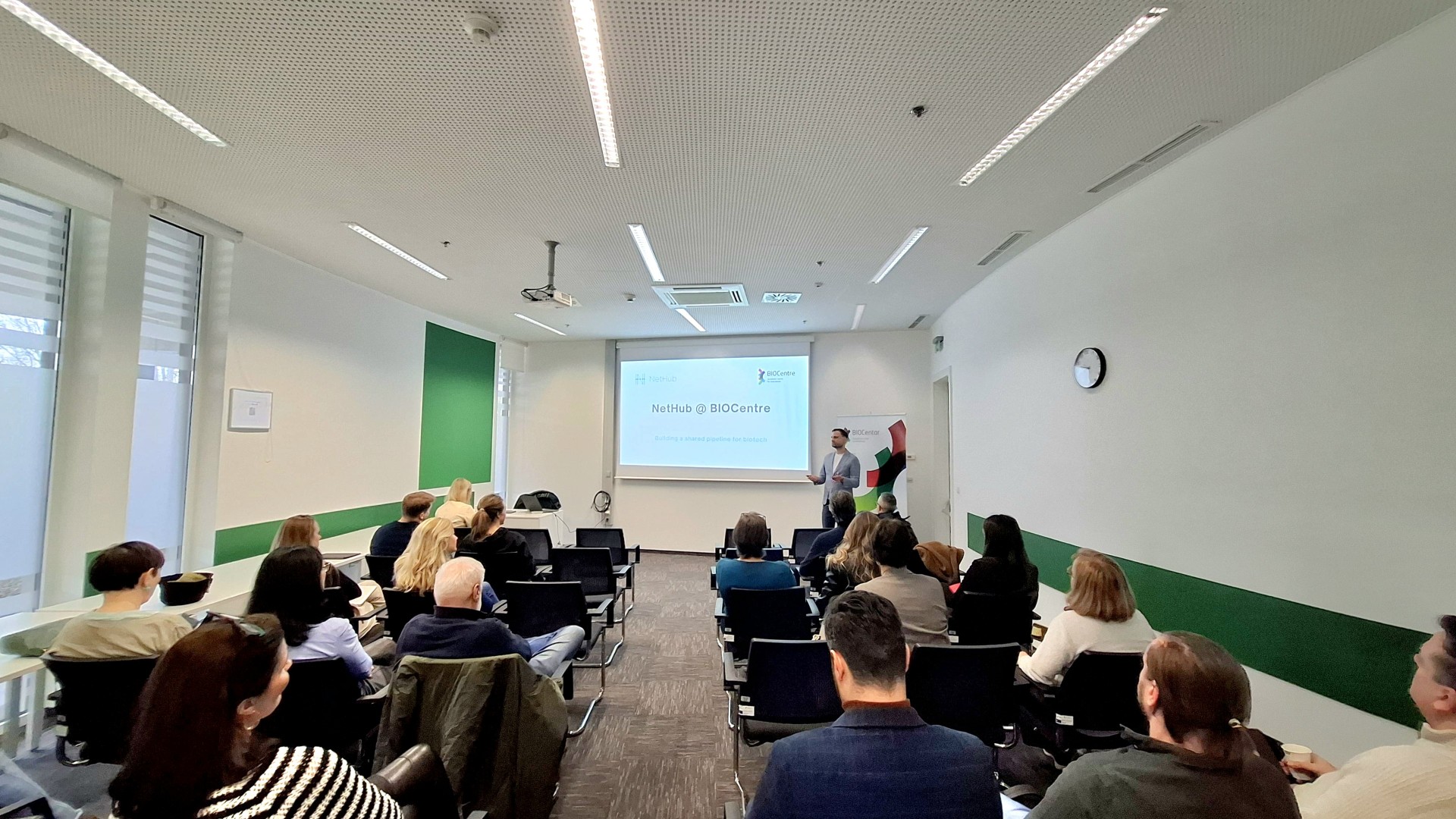Health Hub’s Reflection on the European Health Forum Gastein 2025: Rethinking Solidarity in Health
EALTH HUB closely followed the latest edition of the European Health Forum Gastein 2025 (EHFG 2025), held from 30 September to 3 October in a hybrid format – both on-site in Bad Hofgastein and online (ehfg.org). This year’s central theme, “Rethinking solidarity in health: Healing Europe’s fractured social contract,” invited European policymakers, experts, and civil society to deeply reflect on one of the fundamental questions of our time:Has solidarity survived in the health sector – and how can it once again become a cornerstone of social cohesion, trust, and fairness among citizens and institutions?
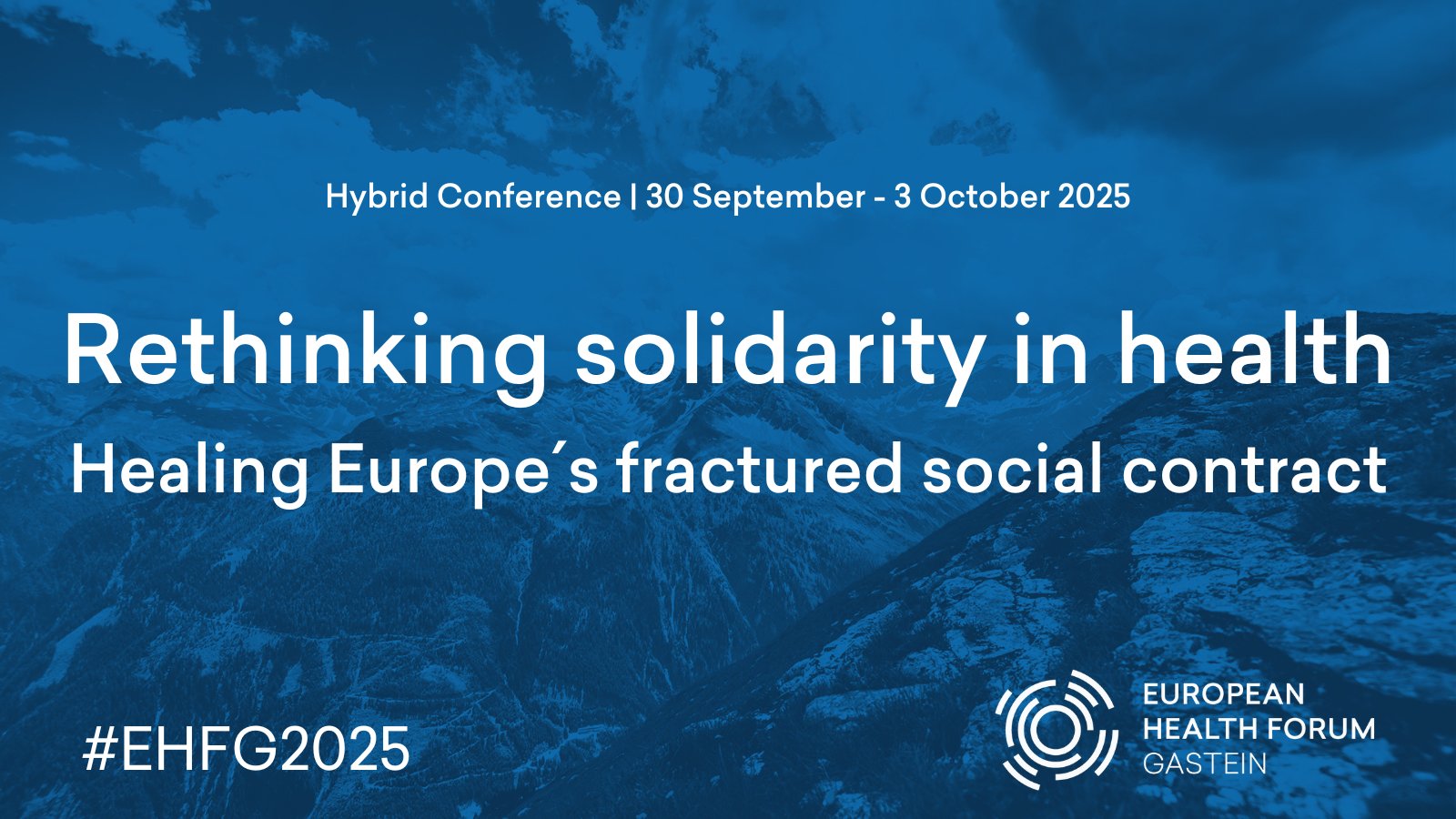
Photo by Freepik
Key Topics of EHFG 2025
The first day of the Forum opened with a discussion on strengthening primary healthcare in the European Union (session S2: Strengthening primary healthcare in the European Union). Although technically oriented, the topic carried deep symbolic meaning – a reminder that the essence of health policy must always return to what is closest to citizens: accessible, high-quality, and comprehensive primary care.
Parallel sessions such as Women’s Health 2030, Hospitals of the Future, and Social, Green, and Arts Prescriptions for Health explored innovative concepts showing that a “prescription” need not necessarily be a medicine, but could also be a social, cultural, or ecological intervention. This opened up a broader question of redefining health and how society can foster well-being beyond traditional medical frameworks.
On the second day, the spotlight was on the plenary session titled “Rethinking solidarity in health: Healing Europe’s fractured social contract,” which brought together representatives of European institutions, national governments, and international organizations.
Discussions focused on the erosion of the social contract, the role of health systems in its renewal, and the need for stronger social safety nets, universal access to care, and policies that leave no one behind. The conclusion was clear: technological innovations, no matter how advanced, are not enough — what is needed are profound structural and value-based changes in the organization of societies and care systems.
The third day was marked by the session “Beating hearts: A vision for cardiovascular health and equity,” dedicated to shaping a shared European vision for the prevention and treatment of cardiovascular diseases. Participants emphasized that this issue is not only a health priority but also a manifestation of solidarity – caring for the hearts of Europe means caring for equality, accessibility, and prevention regardless of age, gender, or region.
![]()
Photo by Freepik
Particular attention was drawn to the session “End-of-life, end of autonomy? Examining the reality of the current end-of-life paradigm,” which explored the moral and institutional responsibility of states to ensure dignified policies for the final stages of life. The focus was on autonomy, the right to choose, and humane care in life’s last moments – a field that requires a sensitive yet courageous dialogue between ethics, law, and practice (source: Active Citizenship Network).
The final day of the Forum opened with topics linking innovation and solidarity: “Innovative Medicine Manufacturing in the European Union” and “Solidarity in a Digitalised World.” The message was unequivocal – solidarity must once again become a guiding principle, not only within health systems but also in digital policies, pharmaceutical production, research, and data infrastructure. Technological progress must serve equality, not deepen divides.
Among the additional sessions, the topic of “Social Prescribing” stood out, examining how social, artistic, and green initiatives can become an integral part of healthcare provision – not as a luxury, but as a means of rebuilding social bonds and preventing illness (Interreg Baltic Sea Region).
The idea that a “medicine” could also be a cultural programme or social activity highlighted how healthcare paradigms are shifting towards holism and humanity.
Throughout the Forum, the Young Forum Gastein (YFG) platform enabled young professionals from across Europe to actively participate in discussions, contribute new ideas, and connect through multidisciplinary networks – reaffirming the importance of involving new generations in shaping the future of health (ehfg.org).
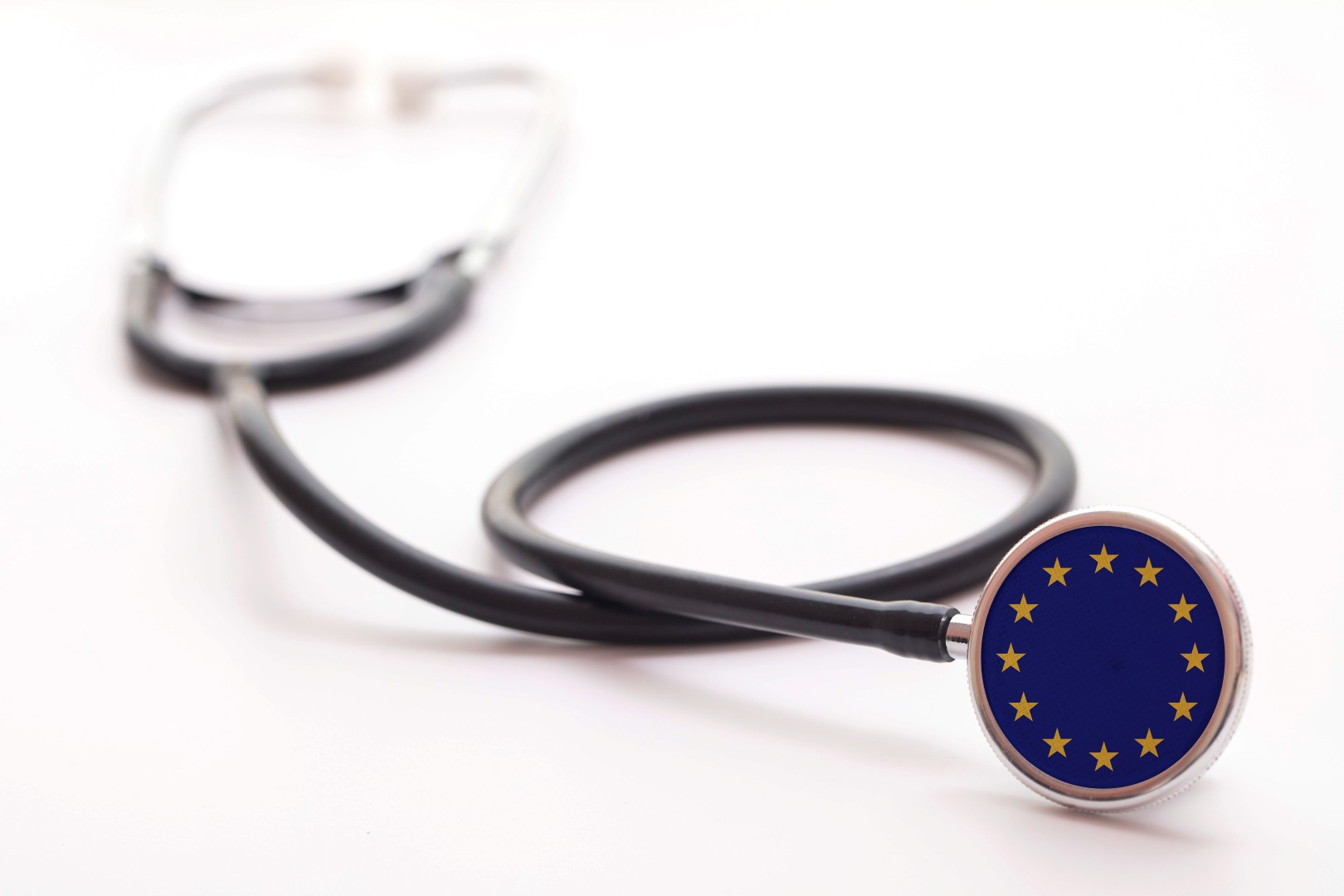
Photo by Freepik
Reflections and Resonating Messages
EHFG 2025 was not merely a gathering of expert presentations – it was a call to renewal and transformation.
The Forum highlighted the fragility of solidarity in health – under the strain of budgetary constraints, growing inequalities, climate challenges, and digital disruption – but also the potential for its revival through new forms of community, trust, and participation.
The fundamental message of the Forum was clear: healthcare can and must become a driver of renewed social cohesion in Europe.
Healing the “fractured social contract” means rebuilding trust through fair policies, transparency, equal access, and active citizen engagement. Health systems must not operate in isolation – they are inseparably linked with education, social protection, environmental, and urban policies.
The Forum also underscored that innovation is not an end in itself. Digitalisation, artificial intelligence, pharmaceutical production, and new care models must be guided by the values of solidarity and social justice. Technological progress that ignores equality can further deepen existing divides – while inclusive innovation can restore trust and reinforce the social contract.
Finally, it was emphasized that change cannot come only “from the top.”
Involving young professionals, local communities, civil society, and citizens themselves is essential for the sustainability and legitimacy of any transformation.
Health policies must be a shared societal project, not merely an administrative decision.
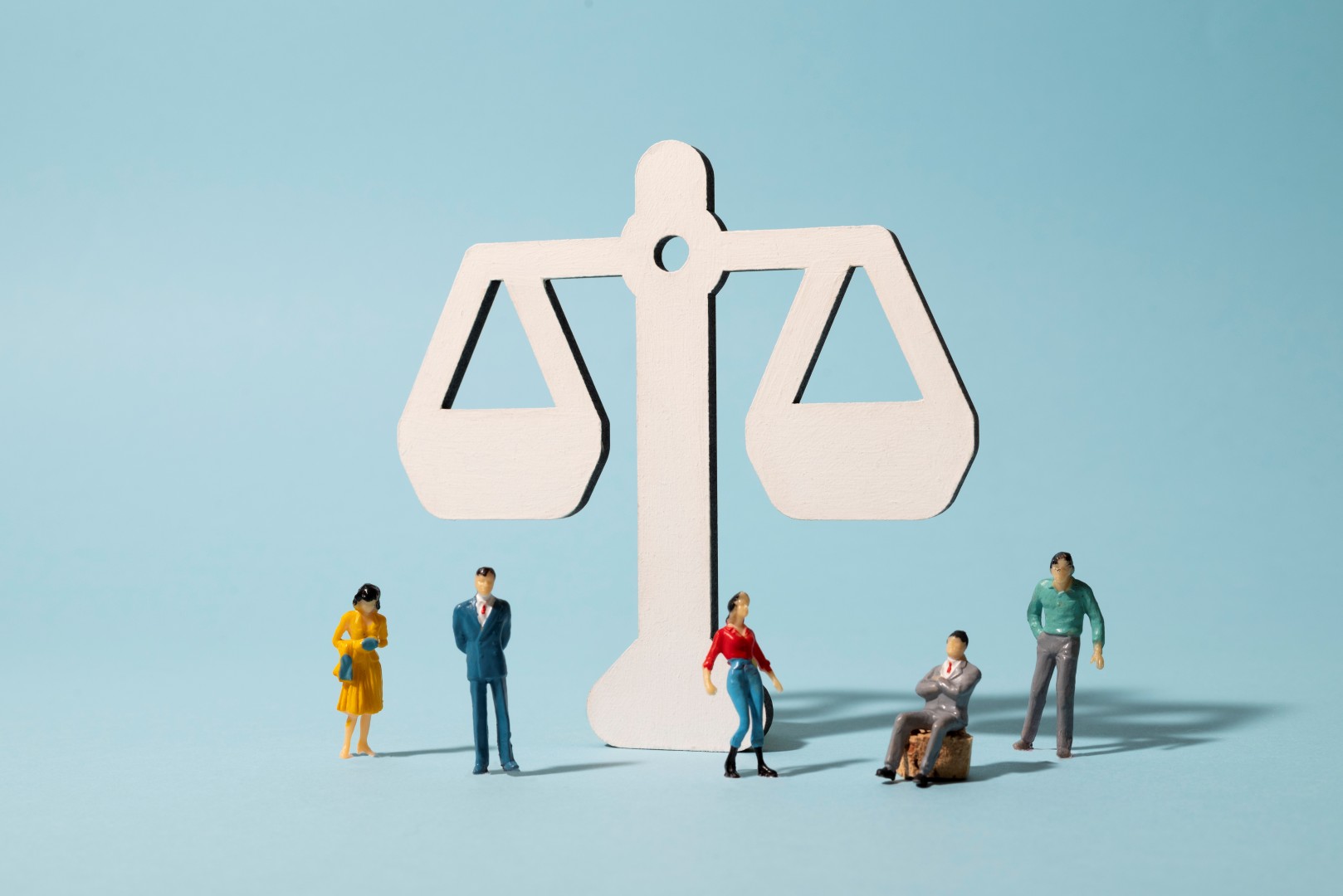
Photo by Freepik
EHFG Recommendations as a Lasting Source of Inspiration for Health Hub’s Activities
For HEALTH HUB, this year’s EHFG once again represents a valuable source of inspiration, insight, and strategic guidance that can be translated into national and regional initiatives.
Our mission is not only to convey the Forum’s conclusions but to actively translate them into policy proposals, pilot projects, and concrete actions.
In the coming period, HEALTH HUB will continue to:
+ Encourage public debates on solidarity in health and open spaces for dialogue among policymakers, experts, and citizens;
+ Monitor European initiatives in oncology, immunisation, cardiovascular health, AI, prevention, and digital transformation, and advocate for Croatia’s active participation in shaping them;
+ Develop policy proposals and expert papers that view digital transition not merely as a technological, but as a social process;
Involve young professionals through mentoring, education, and joint projects – ensuring that new generations are participants, not bystanders, in reform processes.
HEALTH HUB has been continuously following the European Health Forum Gastein for many years – and in 2025, it does so with the same passion and sense of responsibility.
But now is the moment to move from observation to action.
Solidarity in health is not just an ideal – it is an imperative if we wish to preserve the “social contract” with citizens.
For full details and the complete forum programme, visit the official page:
👉 EHFG 2025 Programme
